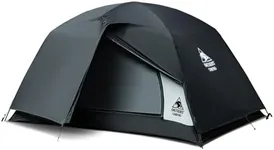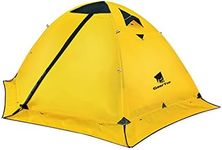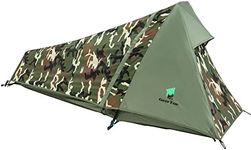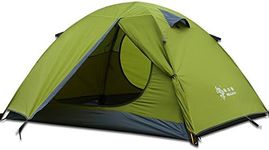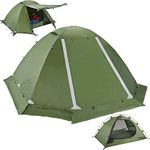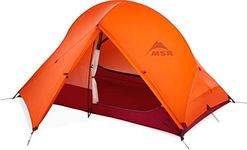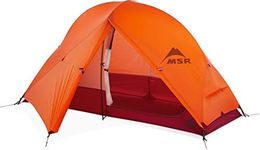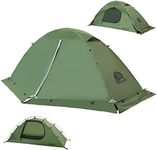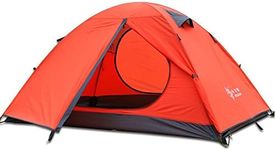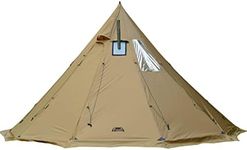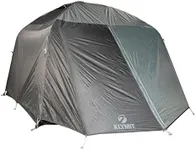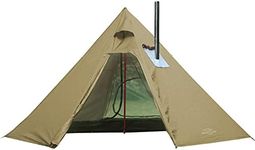Buying Guide for the Best Tents For Winter Weather
Choosing the right tent for winter weather is crucial to ensure your safety, comfort, and enjoyment during your outdoor adventures. Winter tents are designed to withstand harsh conditions such as snow, wind, and cold temperatures. When selecting a tent for winter use, it's important to consider several key specifications that will help you determine the best fit for your needs. Understanding these specs will guide you in making an informed decision and ensure that you are well-prepared for your winter camping experience.Season RatingThe season rating of a tent indicates the types of weather conditions it is designed to handle. For winter camping, you need a tent with a 4-season rating. These tents are built to withstand heavy snow, strong winds, and cold temperatures. They typically have sturdier poles, more robust fabrics, and better insulation compared to 3-season tents. If you plan to camp in extreme winter conditions, a 4-season tent is essential to keep you safe and warm.
Material and FabricThe material and fabric of a tent play a significant role in its durability and weather resistance. Winter tents are usually made from high-quality, heavy-duty materials such as ripstop nylon or polyester, which are both strong and lightweight. The fabric should be waterproof and have a high denier count, indicating its thickness and strength. Look for tents with reinforced seams and waterproof coatings to ensure they can handle snow and rain. If you expect severe weather, prioritize tents with robust materials to ensure they can withstand the elements.
Pole StructureThe pole structure of a tent determines its stability and ability to withstand wind and snow loads. Winter tents often feature strong, durable poles made from materials like aluminum or carbon fiber. These poles are designed to support the tent in heavy snow and high winds. Look for tents with a geodesic or dome shape, as these designs offer excellent stability and wind resistance. If you plan to camp in areas with heavy snowfall or strong winds, choose a tent with a sturdy pole structure to ensure it remains secure and stable.
VentilationVentilation is crucial in a winter tent to prevent condensation buildup, which can lead to dampness and discomfort. Winter tents should have multiple vents and mesh panels to allow for airflow while still retaining heat. Proper ventilation helps to keep the interior dry and reduces the risk of frost buildup. When selecting a tent, consider how well it ventilates and whether it has adjustable vents to manage airflow based on the weather conditions. If you plan to camp in cold but dry conditions, prioritize tents with good ventilation to maintain a comfortable environment inside.
Weight and PackabilityWeight and packability are important factors, especially if you plan to hike or travel long distances with your tent. Winter tents tend to be heavier due to their robust construction and additional features. However, some models are designed to balance durability with lightweight materials. Consider the weight of the tent and how easily it can be packed into your backpack. If you need to carry your tent over long distances, look for a model that offers a good balance between weight and durability to ensure it is manageable while still providing the necessary protection.
Interior SpaceInterior space is important for comfort, especially when spending extended periods inside the tent during winter. Winter tents often have a more compact design to retain heat, but they should still provide enough room for sleeping and storing gear. Consider the number of occupants and the amount of gear you need to store when choosing a tent. If you plan to camp with multiple people or have a lot of equipment, look for a tent with adequate interior space to ensure everyone is comfortable and has enough room to move around.
